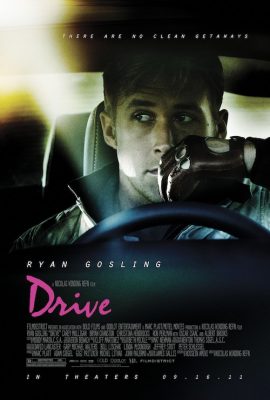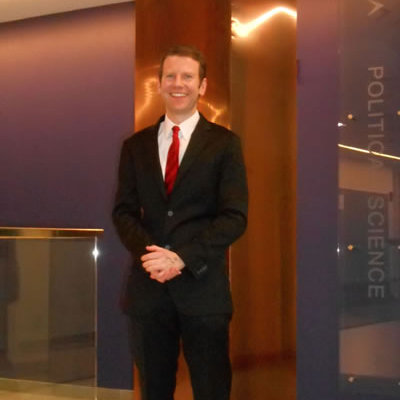In celebration of 20 years of UCHI and as part of our ongoing You Should… series, we’ve asked former fellows and other friends of the Institute to recommend something related to their work or process. Read them all here.
 Drive (2011) is a movie about boundaries and boundaries blurred—between day and night, between the criminal world and the world of bystanders, between moments of tenderness and—fair warning—moments of intense violence.
Drive (2011) is a movie about boundaries and boundaries blurred—between day and night, between the criminal world and the world of bystanders, between moments of tenderness and—fair warning—moments of intense violence.
The protagonist is a Hollywood stuntman / criminal getaway specialist credited only as “Driver.” He speaks in short, staccato bursts. He communicates mostly to set limits to his interactions with others, such as the petty criminals to whom he disdainfully lends his expertise.
His obligations are fleeting—a five-minute window where “anything happens, and I’m yours.” A tick of the clock either side of those five minutes: “you’re on your own.” Each dictation of terms ends with a rhetorical “do you understand?” Driver doesn’t want an answer, the question is purely to reinforce the limits of his engagement with his environment.
And that environment—a neon-lit nighttime Los Angeles, beautifully framed by director Nicholas Winding Refn—is viewed from the margins by Driver. In the James Sallis novella that provides the source material, we are told that Driver “existed a step or two to one side of the common world, largely out of sight, a shadow, all but invisible.” He prizes anonymity, taking short-term leases on nondescript apartments, forming no ties, collecting no baggage, ready to leave on a moment’s notice.
But chance intervenes and soon Driver is no longer setting the terms of his engagement with the world.
Listen for the strange alchemy of the soundtrack. The anthem “A Real Hero” captures the soul of the story with its double-edged refrain “a real human being, and a real hero.” The track which plays over the opening credit, “Night Call,” sets the dark tone; the Chromatics’ “Tick of the Clock” accents the precision of Driver’s craft; the glorious torch-song “Oh My Love” is deeply moving in context.
Note too the way that heroic archetypes are skillfully deployed: The man with no name, the cowboy who rides into town to solve problems then rides off into the sunset, the road-warrior of the Mad Max series. But this is an anti-hero tale at its dark heart. Driver is a violent man and the world in which he operates is brutally Darwinian.
Drive then is a contemporary noir about a man who has carefully constructed a context in which he can function. The question is what happens when the boundaries he has drawn for himself are, suddenly, erased. Who, in the end, is Driver—a real hero, or a somewhat shabby and fallen human being?
– Stephen Dyson
Professor of Political Science
University of Connecticut
 Who is Stephen Dyson? Stephen Dyson is Professor of Political Science at the University of Connecticut. He received his Ph.D. from Washington State University in 2004. His scholarly work focuses on representations of politics and international relations in popular culture, particularly science fiction, and on elite decision making in foreign policy. He teaches classes on politics and popular culture, international relations, political leadership, and the history of nuclear weapons.
Who is Stephen Dyson? Stephen Dyson is Professor of Political Science at the University of Connecticut. He received his Ph.D. from Washington State University in 2004. His scholarly work focuses on representations of politics and international relations in popular culture, particularly science fiction, and on elite decision making in foreign policy. He teaches classes on politics and popular culture, international relations, political leadership, and the history of nuclear weapons.

